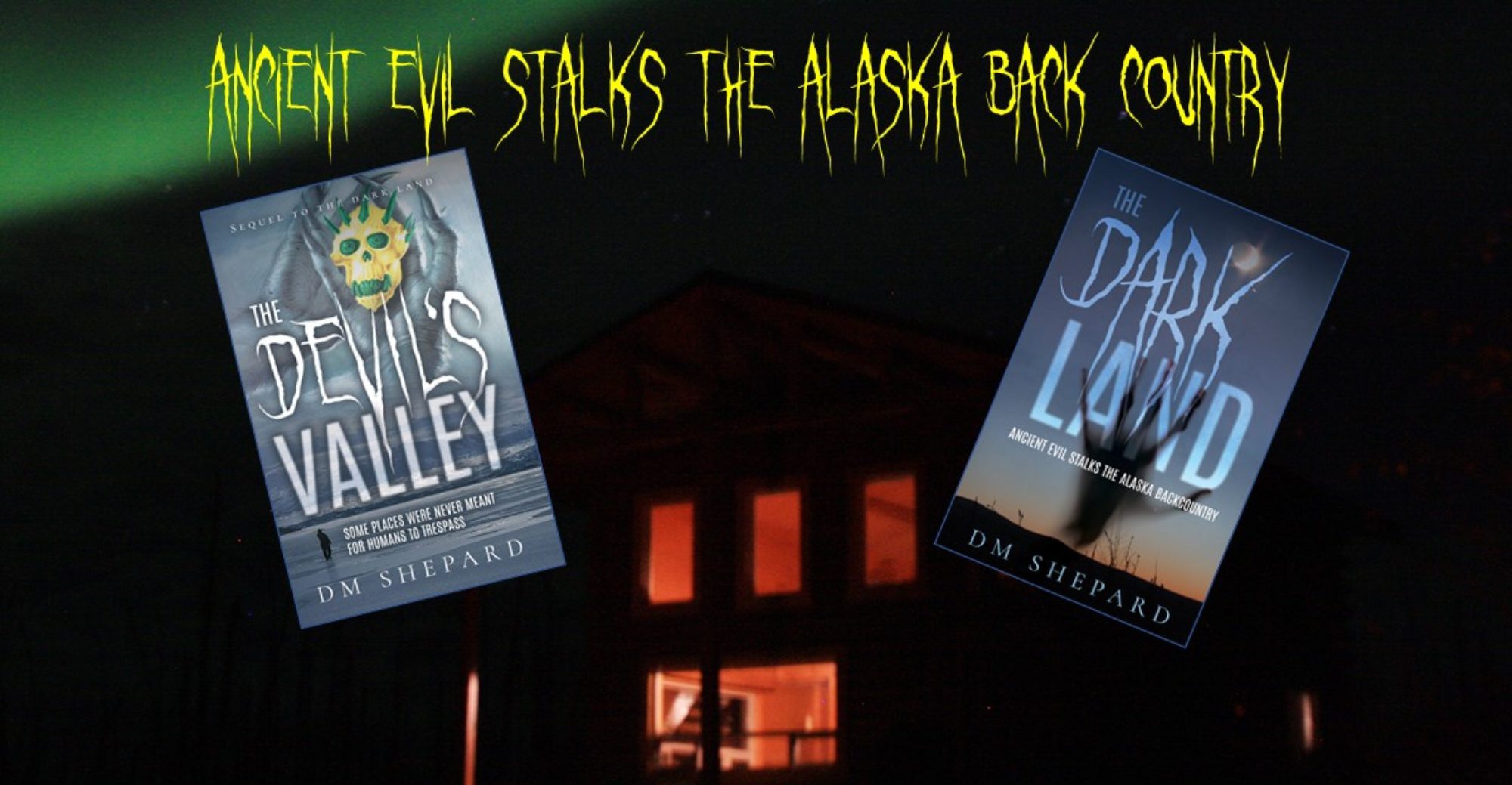Truths Behind the Myths: a look at the locations, myths and legends of the Alaska interior,

Bigfoot
Sasquatch
Ceptid
Chupacabra
Banshee
Draugr
Mothman
The list goes on and on…famous creatures of various cultures.
We call them myths as we snuggle in our modern, warm homes. Secure in the safety of LED electric lights we laugh with our knowledge that science has proven these creatures don’t exist. Maybe by a campfire in the woods we concoct bloodcurdling tales to make ourselves shiver by the firelight for sheer entertainment. Hollywood embellishes on these themes with fake blood and special effects. We munch on popcorn, shudder and turn off the TV. Complacency and normalcy returning. But a chill always haunts the back of our minds. Echoing back to prehistoric times when we only had fire to ward off the darkness.

I think that faint echo is the wonder. The grain of truth behind the tale. As an author, I find inspiration all around me here in the “Last Frontier.” Both in my own and my husband’s adventures in the interior of Alaska. In a previous blog, I went into detail about the Legend of the Cet’aeni and the Ahtna people, which were part of the inspiration for my story the Dark Land. In this blog I will go into further detail about other adventures that sparked my imagination.
A Summer Hike
My husband at one point recounted for me a tale he heard from some of our Athabascan friends about mysterious creatures of legend that lopped off heads and played with them. This stuck out in his mind because he and his brother homesteaded for several years in a remote region of Alaska near Slana. He had heard this tale, but it wasn’t until a hiking trip on a summer day, he started to question whether it was true.

Ray would often go on hikes in the Wrangell-St. Elias National Park from the Nabesna side. On this particular day, he chose to hike past a junction of Tenada Creek and the Copper River, near a place called, “Batzulntas.” To the Athabascan Nabesna Tribes who refer to themselves as “People of the Headwaters,” this word means “Roasted Salmon Place.” When he stopped at the visitor center and let them know where he was going, the local guide advised him not to go alone—let alone at all. While the Batzulntas was a popular local fish camp, beyond that was considered to be an evil place where unwelcome spirits dwelled. A place where people didn’t belong. Ray thanked him for his advice and started his hike. It was a bright summer day, and he thought that there couldn’t be anything too terribly dark lurking in the woods.
He got a few miles into his hike then said that everything grew eerily quiet and still. He sensed that eyes were watching him from the deeper spruce forest. Menace and evil permeated the summer day like a fog. Spooked, he turned and ran the whole way back to the trail head.

Now Ray is a pretty fearless guy. He’s climbed Denali, skied the Alaska Range and worked in all kinds of remote Alaska wilderness. But to this day, he refuses to go back there. He concedes there was something there in the woods that didn’t want him there.
He and I talked at length about the various creatures of the Alaska Back country. The Athabascan people have unique stories and songs related to their land that you can find here:
Athabascan Ahtna Legends
http://www.native-languages.org/ahtna-legends.htm
The Valley of the Headless Corpses
As I mentioned before, what about the grain of truth behind a tale? One of the other inspirations for my story The Dark Land, was the Nahanni Valley in British Colombia. It is also referred to as the Headless Valley. The Dene First Peoples in Canada have oral legends revolving around this area, but nothing written. Much like the Tanaiana, Hwechin, and Ahtna Athabascan tribes, this is a sacred area. It is off-limits to outsiders. In modern times, it requires special permission and permits in order to explore this region.
Articles about Nahanni Valley of the Headless Corpses
Shared Legends
While the Dene, Hwechin, Ahtna, and Tanaina tribes are separated by harsh terrain and extreme conditions, it is fascinating that they share similar lore about creatures in the forest that remove heads. They also have areas that are considered to be “no man’s land.”
Man vs Nature & Man vs Supernatural
These common themes became the inspiration for my horror novella set in the backcountry of the Wrangell-St. Elias National Park in winter. Man vs Nature is a common theme in literature. The Alaska backcountry is harsh and unforgiving enough. But when you throw in the element of supernatural—creatures that have evolved to thrive in the extreme environment, while humans only have their limited brain and skills. That cuts to the thrill of visceral horror. Can humans come out on top of both at the end? Or will the eerie howl in the night prevail?

Thanks for reading! Sign up for my newsletter for a sneak peak of The Devil’s Valley, sequel to The Dark Land (coming May of 2021) .

